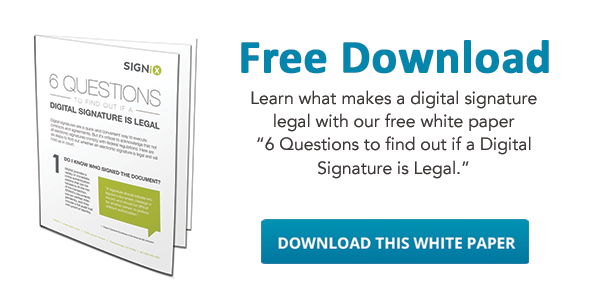Many people are reluctant to use e-signature technology because they’re afraid that signatures created online aren’t legal. The truth is that e-signatures are just as legally binding as handwritten signatures. But that doesn’t mean that all e-signature products are on an equal footing when a signature is challenged in court.
When someone claims “I didn’t sign that,” you need to know that your e-signature vendor has your back. Most e-signature companies use audit trails (sometimes also called an audit log) to track the steps of the signature process. The audit trail is a powerful tool that can prove who signed a document and when they signed it.
But some e-signature companies don’t think it’s important to log every event that happens to your documents. They market their audit trails as “simple” or “easy,” but these audit trails don’t tell the whole story of the life of your document. The lack of detail can put you at risk if your document is challenged in court.

We don’t agree with simplistic audit trails, which is why we’ve always taken pride in offering an incredibly detailed audit log with each document signed in our system. This feature, which we call TotalAuditTM, is included at no additional cost.

Take a look at the difference between TotalAudit and a simplistic audit trail. Notice that in the simplistic audit trail there are three signatures on the document, but the vendor has condensed the signatures into only one signature in the panel on the left. What happens when a signer claims they didn’t sign one of those signatures? There’s no proof, and the lack of consistency can create doubt.
Compare that to SIGNiX’s TotalAudit. There are three digital signatures on the document, and each of those signatures is logged in the signature panel on the left. And this just scratches the surface of the amount of detail our system records for every document.
TotalAudit also keeps track of every time any of the following events happen:
- Transaction creation
- Emails and notifications sent to any signer
- Signers consent to use e-signatures
- User authentication
- Documents viewed by each signer
- Signature creation (by each signer)
- Party agreement to/acknowledgement of document
- Transaction completion
- Document downloads after signing
- Cancellations and opt outs
- Changed party information
This level of detail is critical if your documents are ever challenged in court. To learn more about what makes a digital signature legal, download our white paper.
%20formatted-1.png?width=582&height=170&name=SIGNiX%20Logo%20Main%20(white)%20formatted-1.png)

